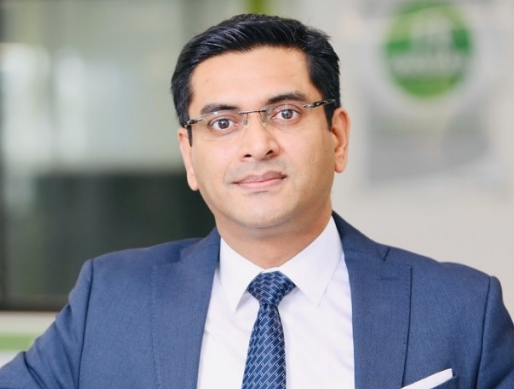“Through diligent management, people with diabetes can reduce risk of causing damage to other parts of the body”
October 31, 2023 | Tuesday | Views
While India is significantly burdened by diabetes-related complications, constituting a considerable portion of the global statistics, public-private partnership appears to be a key mantra to combat the disease. Omar Sherief Mohammad, Cluster Head India, Middle East & Africa at Roche Diabetes Care (RDC) talks to BioSpectrum about how the company is collaborating with the government in fighting the chronic problem of diabetes in the country.
How is RDC addressing the diagnosis/treatment of diabetes-related complications such as retinopathy, neuropathy, foot ulcers etc. in India? What are the key challenges in identifying the co-morbidities?
Regular screening and self-monitoring of blood glucose (SMBG) are two critical tools in managing diabetes and its related complications. While screening can help detect diabetes at an early stage, regular monitoring can help ensure that people with diabetes spend more time within the range. Together these two enable detection of complications early and also timely intervention which helps to reduce the risk of disease progression and long-term burden. Roche offers smart blood glucose monitoring (BGM) devices, Accu-Chek, that facilitate effective blood glucose monitoring, contributing to improved management of co-morbidities associated with diabetes.
Accu-Chek smart BGM devices connect seamlessly via Bluetooth with the innovative mySugr app and play a crucial role in supporting individuals in their diabetes management journey. With the help of connected meters one can easily transfer their blood glucose data to the app. The app then uses this data in tracking blood glucose levels and patterns of peaks and lows, medication, and other relevant health data like diet, HbA1C analytics etc. Through this diligent management, people with diabetes can ensure that they spend more time within the specified range, thereby reducing their risk of causing damage to other parts of the body leading to comorbidities.
How is RDC strengthening its association with the government to improve screening of diabetes nationally, along with the related complications?
In 2023 Roche partnered with Tamil Nadu state government for their Makkalai Thedi Maruthuvam (MTM) programme aimed towards early detection, timely management and reduction of non-communicable disease (NCD) burden by door-to-door screening of population above the age of 18 years. To execute this programme, Roche collaborated with VinCense – a public health based digital solution partner to conduct population based NCD screening & management in Madurai Corporation Urban Primary Health Centres (UPHCs). As a part of the intervention, essential vital details such as height, weight, pulse rate, SPO2, BP, ECG and blood glucose were monitored, recorded and digitised on this platform to create customised dashboards to aid better understanding of current health scenarios, effective disease management and improved health outcomes. Through this joint initiative, Roche leveraged technology in order to improve accessibility, availability and affordability of diagnostics and to design data-driven models to improve the public health care system. In the pilot phase of the project (December 2022 to September 2023), Roche supported screening of 67,370 persons in Tamil Nadu.
We have also successfully collaborated with the Government of Uttar Pradesh, supporting both the Gestational Diabetes and Non-Communicable Disease Programmes. This collaborative effort bridges learning and execution gaps by training team members and reaching out to Auxiliary Nurse Midwife (ANM) and An Accredited Social Health Activist (ASHA) workers across blocks in the state, covering over 18 districts, 110 blocks, and training more than 3125 Anganwadi and Asha workers. Further Roche conducted a diabetes screening and awareness camp at the Accountant General Office in Bhopal, Madhya Pradesh, testing over 200 people from the Indian Audit & Accounts Department. Furthermore, RDC extended its partnership with the Government of West Bengal for the 6th term, reinforcing our commitment to improving diabetes care.
We also collaborate with non-for-profit organisations such as Sweetlings and Changing Diabetes in Children (CDiC) which is a part of the Novo Nordisk Education Fund (NNEF) to provide access to diabetes care to underprivileged children with type 1 diabetes across the country.
Dr Manbeena Chawla
(manbeena.chawla@mmactiv.com)









